Outstanding Educational Program Award
This award goes to an educational program that is significantly impacting our field.
The outstanding educational program will have well-defined objectives for its target audience, and provide supportive educational materials, content and methods that are audience-appropriate.
The program is innovative and adaptable for other practitioners and educators to replicate and/or adapt in their work.
2024 Outstanding Educational Program,
3RD Decade Financial Education Program
We are now accepting nominations! Please submit your nominations no later than July 14, 2025. You may view the application questions questions here to help you prepare!
AFCPE endeavors to make our awards process accessible to any and all users. If you require assistance regarding the accessibility of the application, or if you would like to request an accommodation to participate in the application process, please contact us at awards@afcpe.org.
Congratulations to past winners of the Outstanding Educational Program Award!
2024: 3RD Decade Financial Education Program
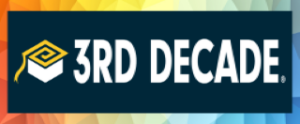 The 3RD Decade Financial Education Program is a transformative initiative empowering young adults aged 18-35 with financial literacy skills. Through remote classes and personalized mentorship, the program has reached over 1,000 participants across 46 states, fostering a community dedicated to financial empowerment and independence.
The 3RD Decade Financial Education Program is a transformative initiative empowering young adults aged 18-35 with financial literacy skills. Through remote classes and personalized mentorship, the program has reached over 1,000 participants across 46 states, fostering a community dedicated to financial empowerment and independence.
2023: “Real Money. Real World.” Ohio State University Extension – Fulton County
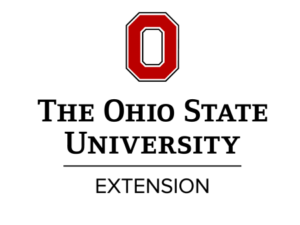
As a program of Ohio State University Extension, “Real Money. Real World.” is fun and distinctive because it includes an interactive spending simulation that provides the opportunity to make lifestyle and budget choices similar to those made by 27-year-old adults. RMRW has three parts, including four preparatory classroom lessons, a hands-on budget management and decision-making spending simulation, and a post-session evaluation of spending choices made during the simulation.
2023 Nominee:
The Society for Financial Education and Professional Development (SFEPD)
2022: Max by AccessLex®
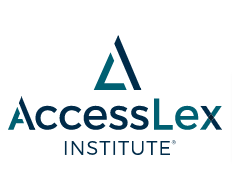 AccessLex Institute is a non-profit organization committed to helping talented, purpose-driven students find their path from aspiring lawyers to fulfilled professionals. In partnership with its nearly 200-member law schools, improving access, supporting academic and financial success, and positively influencing legal education have been at the heart of the organization’s mission since 1983.
AccessLex Institute is a non-profit organization committed to helping talented, purpose-driven students find their path from aspiring lawyers to fulfilled professionals. In partnership with its nearly 200-member law schools, improving access, supporting academic and financial success, and positively influencing legal education have been at the heart of the organization’s mission since 1983.
Many law students today are taking on far higher debt loads than they have the experience to manage. But debt management is far from the whole story. Students often lack a framework for making good financial decisions, which can impact every aspect of their personal and professional futures. And while financial education counseling may be available, it is often not robust enough to meet their needs, nor is it tailored to address their individual circumstances. MAX, the first-of-its-kind, is a multi-faceted personal finance curriculum exclusively for law students.
MAX combines in-person workshops, online and virtual programming, and one-on-one counseling to leverage the strengths of law students and fit into their demanding schedules. The program is structured to complement the work that law school administrators are already doing to educate their students on loan repayment and personal finance.
2021: Predictably Irrational Book Study by Andi Wrenn, AFC®
The Predictably Irrational Book Study was developed to engage financial professionals in discussion related to personal finance. Bringing together a community of people that come from different fields and backgrounds gives the group a variety of input and viewpoints which can help in a learning environment. The book and research by Dan Ariely, Predictably Irrational, explains the hidden forces that drive how we make decisions. While these decisions are often far less rational than we think, once we know more about them, they can help us stay on top of our finances, interact better with others and live happier lives. Through this self-study program, 182 financial professionals gained knowledge of these forces and an understanding of how to use that knowledge to assist clients when it comes to the financial decisions they make. Participants read 322 pages of materials and had engaging discussions with professionals around the globe in a virtual setting. The overall feedback from participants was overwhelmingly positive and they look forward to the next book study. This program can be easily adapted to use with consumers, students, employees, and professionals using this book or others related to personal finance. Building a community of people sharing and learning together is a great part of this education program.
2018: Texas Tech University PFI Program
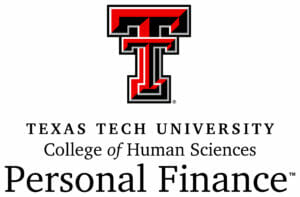 Dr. Sandra Huston & Jennifer Wilson, AFC®
Dr. Sandra Huston & Jennifer Wilson, AFC®
The Personal Finance (PFI) Program at Texas Tech University was launched in the spring semester of 2013. The program has accomplished a lot in a relatively short amount of time. The PFI Program started with one course and over the years has expanded into offering several courses. The program currently serves approximately 3,000 students per academic year. The PFI Program enjoys a vibrant presence on campus with the vision that all students will be financially literate before they graduate. The program offers financial literacy courses along with opportunities for students to also understand the psychological and behavioral aspects of money. The PFI mission has three key foundational elements, the “3 E’s” – encouragement, engagement and evaluation. In fulfilling its mission, program staff collaborate with many partners to provide financial awareness and learning opportunities throughout the campus community and beyond. Course materials are intentionally designed to disseminate content through a variety of methods to appeal to all learning styles and ensure that students experience success in their learning processes. The PFI Program is committed to redefining student success through financial education.
2017: University of Delaware & University of Maryland Cooperative Extension’s “Smart Choice and Smart Use Health Insurance”
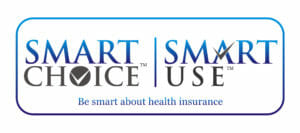 Maria Pippidis, MS, AFC®, Jesse Ketterman, MS, PhD, Mia Russell, MBA, PhD, AFC®
Maria Pippidis, MS, AFC®, Jesse Ketterman, MS, PhD, Mia Russell, MBA, PhD, AFC®
The Smart Choice Health Insurance™ and Smart Use Health Insurance™ program consists of five multidisciplinary modules that provide health insurance literacy education to help people get the information they need to make effective health insurance decisions. Health insurance is both a financial and a health decision couched in each unique individual and family financial and health situation. This creates a unique set of circumstances for which there are many possible solutions to a family’s health care needs. Yet, research suggests that consumers are confused about how to choose and the best ways to use their health insurance (Quincy, 2012). Recognizing this issue as a major consumer education opportunity and need, health and financial educators from the University of Maryland Extension and University of Delaware Cooperative Extension formed the Health Insurance Literacy Initiative to develop a research- and evidence-based program. The program’s objective is to help adults age 18 and older build their knowledge, skills and confidence to choose and use their health insurance wisely. By creating, testing and evaluating the modules, and working with Extension Educators around the country, the team determined that participants increase their confidence and likelihood to take positive action when choosing and using their health insurance.
2016: The University of Utah Personal Money Management Center
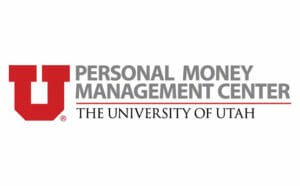
Ann House & Tiffany Davis
The goal of the campus program is to provide exceptional personal finance education to our University students so they are able to enroll and be successful in a local Individual Development Account (IDA) matched savings program. By partnering with the community IDA program, they assist low- to moderate-income students to save a portion of their income and get a matched grant to pay for an entire semester of school. This helps University of Utah students who may be struggling financially to graduate. Additionally, the program’s purpose is to teach money management skills that will assist the student as they continue to make consumer decisions beyond college to achieve lifelong successful financial outcomes. The deliverable is an approved interactive and engaging eight-hour personal finance course which meets one of the requirements to enter the savings program. The center worked with local and national IDA partners on the course to assure that its reliability and content would get the endorsement of the state’s funder of the IDA program, Assets for Independence (AFI). The course is taught on campus and in between classes such as during fall and spring break, to connect as many students as possible into this program.
2015: IU Money Smart$
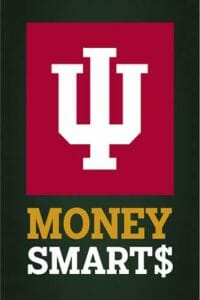 Phil Schuman & Morgan McMillan
Phil Schuman & Morgan McMillan
The Office of Financial Literacy’s innovative MoneySmarts program is designed to make financial discussions approachable to students. Their website, moneysmarts.iu.edu, contains 50 lessons on different financial topics relevant to college students that are released at “decision times” for students to provide an opportunity for “just-in-time” education. Each lesson is approximately 3 – 5 minutes and is written in a friendly manner so as not to make the content overwhelming. An episode of the “How Not to Move Back in With Your Parents” podcast accompanies each lesson. The podcast features financial personality Pete the Planner and IU student (now alumnus) Alex Eaton as they talk about the financial topic for 8 – 10 minutes. The conversation is casual and sometimes off the wall, by design, to reiterate that learning about finances does not have to be overwhelming or boring. The podcast format allows for students to pick up financial information on the way to/from class.
Their marketing efforts make financial education fun and make the program unique. Their current campaign focuses on “defeating the debt monster,” and features ads university-wide that create a call to action for students. With 8 different campuses to whom they provide financial education, they recognize that the demographics of students on each campus is different. With this in mind, they have developed a well-rounded program that appeals to all different types of learners. In the first two years of implementation, the Office of Financial Literacy has been credited with decreasing student loan borrowing at Indiana University by 16% (or $44 Million).
Comments are closed.